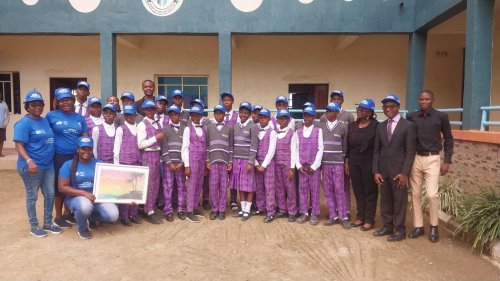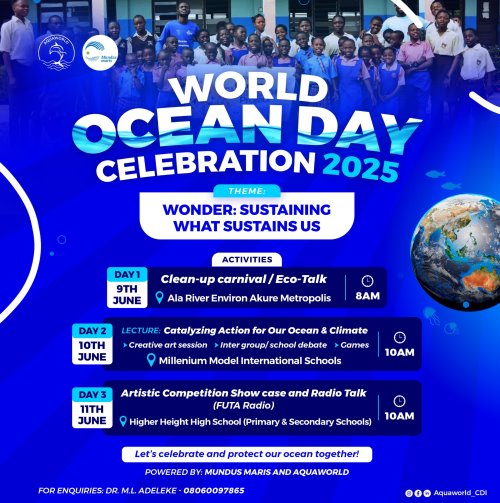 World Ocean Day is a global observance established by the United Nations, and held annually on June 8 to raise awareness of the oceans’ vital role in sustaining life, regulating the climate, and supporting biodiversity. To celebrate the 2025 edition, Aquaworld CDI, Mundus maris, the Federal University of Technology Akure (FUTA), and AIESEC FUTA co-organized a three-day programme themed “Wonder: Sustaining What Sustains Us” in line with the UN motto for World Ocean Day 2025. Have a look at this brief summary of the events, outcomes, and overall impact of the celebration.
World Ocean Day is a global observance established by the United Nations, and held annually on June 8 to raise awareness of the oceans’ vital role in sustaining life, regulating the climate, and supporting biodiversity. To celebrate the 2025 edition, Aquaworld CDI, Mundus maris, the Federal University of Technology Akure (FUTA), and AIESEC FUTA co-organized a three-day programme themed “Wonder: Sustaining What Sustains Us” in line with the UN motto for World Ocean Day 2025. Have a look at this brief summary of the events, outcomes, and overall impact of the celebration.
The objectives of the partners were to
- promote environmental stewardship and ocean literacy.
- engage communities and schools in practical and creative advocacy for ocean conservation.
- inspire young people to catalyse local actions for global marine sustainability.
- foster partnerships with educational institutions and local stakeholders.
The 2025 World Ocean Day was celebrated in Akure, Ondo State, Nigeria. The significant events took place in Akure, Ondo State, Nigeria, between 9th and 11th June 2025. The three days event featured Sokoti Community, Ala River (Day 1), Millennium Model International School (Day 2), and Higher Heights High School (Day 3). The motto for this year aimed at raising awareness about global issues impacting our ocean, the by far biggest connected ecosystem on Planet Earth we all depend on.
Klick on the pages below to catch a glimpse on activities.

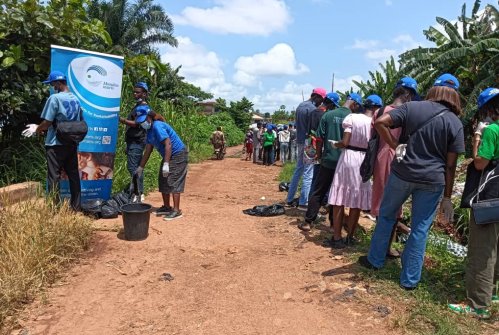 The celebration commenced with a clean-up exercise and community eco-awareness engagement at the Ala River environs in the Sokoti Community. A team of 25 volunteers sensitised the local populace, including key stakeholders:
The celebration commenced with a clean-up exercise and community eco-awareness engagement at the Ala River environs in the Sokoti Community. A team of 25 volunteers sensitised the local populace, including key stakeholders: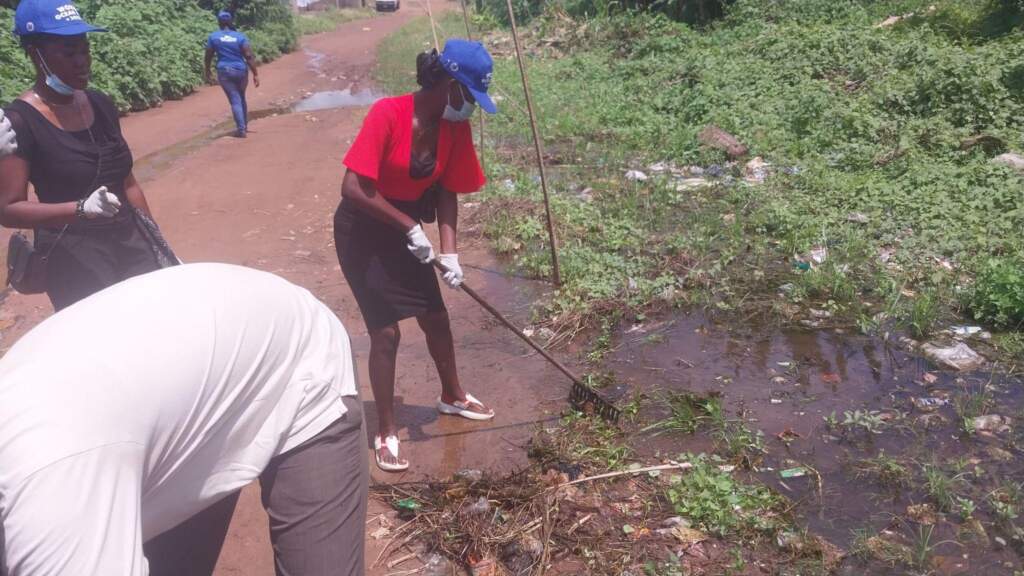
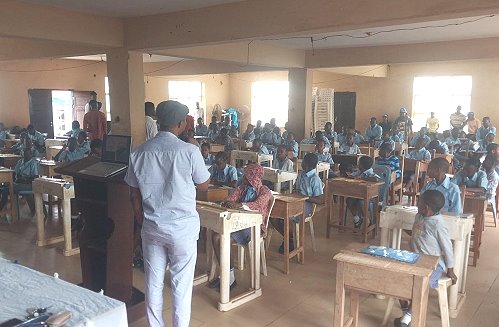
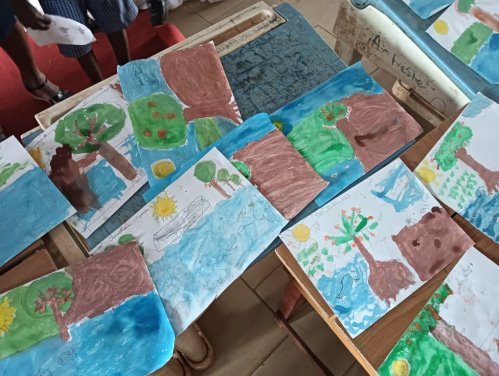 Following the lectures were interactive activities, including:
Following the lectures were interactive activities, including: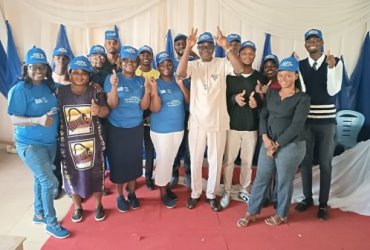
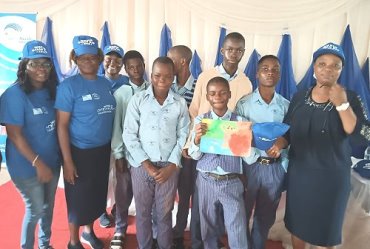
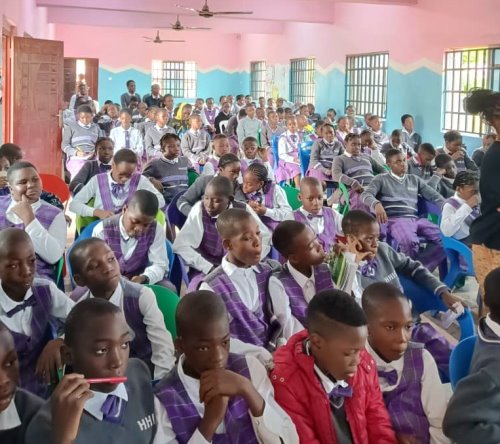 This day featured a vibrant display of advocacy-themed paintings and an avenue for students to explain their artwork and its wider environmental significance. Over
This day featured a vibrant display of advocacy-themed paintings and an avenue for students to explain their artwork and its wider environmental significance. Over 